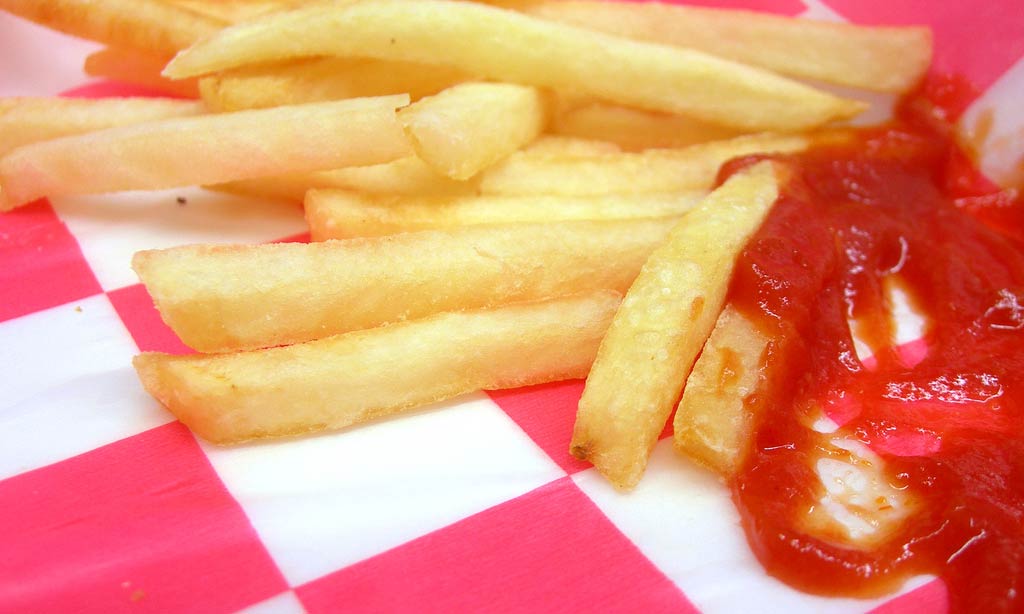
[Editor’s Note: This is one in an AJR series about media startups.]
When Mackenzie Barth, a junior at Northwestern University’s School of Communication, moved off campus, she struggled with cooking and shopping for groceries. She mostly ate chicken and fries at the campus dining hall, but she wanted to branch out and she had limited experience in the kitchen.
That’s what brought her and junior Sarah Adler, a student at Northwestern’s Medill School of Journalism, together to create a publication to capture the food culture at Northwestern. They called it Spoon University.
“There were all these different types of magazines on campus but nothing on food,” said Barth, co-founder and co-CEO. “Food is a whole new world in college and we thought it was strange there wasn’t a resource addressing it.”
Follow AJR on Twitter: @AmJourReview
With Adler’s design skills, Barth’s editorial eye and the interest of lots of hungry students, they put together a staff of about 100 and raised enough money to put out three paper issues beginning in the fall of 2012. Then they started to see the demand for the niche publication escalate at other schools across the country.
“We were getting emails from people at other schools asking us to help them start chapters,” said Barth. “We figured the need is bigger than just Northwestern, so we made it a national resource for college students.”
After Adler and Barth graduated the following June, they launched Spoon’s website, and saw an expansion to 30 schools in five months.
It now has a reach at 50 schools because of contributors from across the country, according to Barth.
Spoon’s goal is to “help encourage exploration and conversation about food to help students navigate what the hell is going on in their dorms, dining halls and tiny apartment kitchens,” according to the website.
With a distinct college voice and simplified recipes, grocery lists and college food trends, there is something for the budding chef on a budget, dining hall junkie, clueless cook or health guru, said Barth. With advice on how to make gourmet snacks like bruschetta from dining-hall finds, tips on creating beachy watermelon-tequila wedges and other offerings geared for young foodies, the website saw 150,000 unique visitors in May.
Spoon’s biggest competitors are local campus publications, said Barth, but Spoon stands out because there is no single “all encompassing” local food publication with a specific college audience.
And it’s that niche audience that makes Spoon’s business model work, its owners say. Although Spoon started out as a nonprofit when first launched at Northwestern, its ability to capture big college demographics has lured in sponsorship from different brands who want to reach the college audience.
“We’ve been working with a lot of brands to connect with college campuses,” said Barth. “These brands provide sponsored content, sponsored verticals, sponsored events, local sponsored campaigns …. That way the site is clean, there are no ads clogging the page, just a simple trusted banner display ad at the top.”
For example, Popchips pledged to give away a year’s supply of chips to one winner who entered a drawing on the site. Barth described such sponsorships as a more personalized, rich experience compared to online ads.
As a result, the website has allowed Spoon to get ahead when it comes to digital innovations, according to Barth. With an Instagram feed that posts original food photos and hashtags and a Twitter page for each chapter, Spoon’s social media presence is what you might expect of your average tech-savvy college-student entrepreneur.
In addition, Barth noted that the site has a responsive design to all mobile devices, ensuring easy readability. But on the startup’s journey to become a nationally recognized brand, the digital innovations will not stop there, said Barth.
“Phase two is to create a responsive and engaging app with high-quality, shareable photos, similar to the website,” said Barth. “We also hope to open it up to become more user-generated, like Yelp. That’s an important step towards our ultimate goal — becoming an encompassing food resource.”
Company: Spoon University
Website: www.spoonuniversity.com
Office Address [Headquarters]: New York, New York.
Date Founded: Compiled team in April 2012, first issue came out fall 2012.
Founder [s]: Mackenzie Barth and Sarah Adler
Products: College food publications on campuses across the country.
Description from company: Spoon University is the only online food publication specifically for college students. The student-powered startup’s goal is to help college students explore the conversation about food and help them navigate food in college, away from the comfort of home-cooked meals.
*Editor’s note: This post has been updated to reflect that Mackenzie Barth studied at Northwestern School of Communication.








Leave a Comment